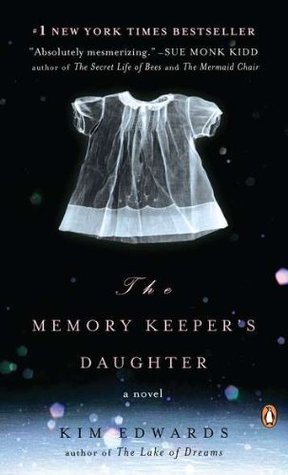Kim Edwards's stunning novel begins on a winter night in 1964 in Lexington, Kentucky, when a blizzard forces Dr. David Henry to deliver his own twins. His son, born first, is perfectly healthy, but the doctor immediately recognizes that his daughter has Down syndrome.
Rationalizing it as a need to protect Norah, his wife, he makes a split second decision that will alter all of their lives forever. He asks his nurse, Caroline, to take the baby away to an institution and never to reveal the secret. Instead, she disappears into another city to raise the child herself. So begins this beautifully told story that unfolds over a quarter of a century--in which these two families, ignorant of each other, are yet bound by the fateful decision made that winter night long ago.
A family drama, The Memory Keeper's Daughter explores every mother's silent fear: What would happen if you lost your child and she grew up without you? It is also an astonishing tale of love and how the mysterious ties that hold a family together help us survive the heartache that occurs when long-buried secrets are finally uncovered.
~~~~~~~~~~~~~~~~~~~~~~~~~~~~~~
This is a hard one for me to review. I really liked the premise of the book. I thought the idea of how one split decision could alter the course of one's life and have a ripple affect was intriguing. However, I had a hard time connecting with a lot of the characters, especially David and Norah. I had an easier time connecting with characters like Caroline and Paul, but even they got on my nerves.
Instead of being wrapped up in the story, I found myself checking the bottom corner of my Kindle for the "percent left" number. At times, the narrative felt like a chore to get through. It dragged and took turns that made no sense. I kept waiting for the climax, the big reveal, the lesson learned, but when it came, it felt incredibly anti-climatic and flat to me. In my opinion, this one was just okay.
Instead of being wrapped up in the story, I found myself checking the bottom corner of my Kindle for the "percent left" number. At times, the narrative felt like a chore to get through. It dragged and took turns that made no sense. I kept waiting for the climax, the big reveal, the lesson learned, but when it came, it felt incredibly anti-climatic and flat to me. In my opinion, this one was just okay.

No comments:
Post a Comment